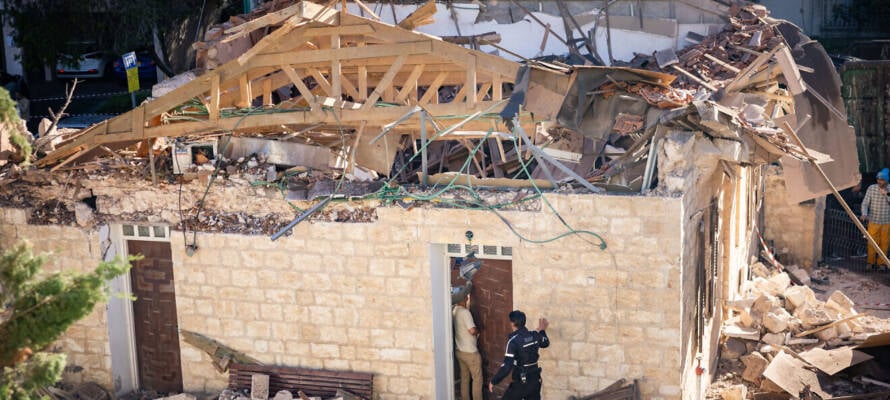The relentless attacks from Hezbollah have forced tens of thousands of Israelis to flee their homes in the north.
A ceasefire to halt fighting between Israel and the Lebanese terrorist organization Hezbollah is close, but an agreement has not yet been achieved, according to the US State Department.
“We don’t believe we have an agreement yet. We believe we’re close to an agreement. We believe that we have narrowed the gaps significantly, but there are still steps that we need to see taken. We hope that we can get there,” State Department spokesperson Matthew Miller told reporters during a press briefing on Monday.
White House national security spokesperson John Kirby expressed similar sentiments.
“We’re close,” he told reporters, but “nothing is done until everything is done.”
Miller and Kirby’s comments came not long after a senior Israeli official told Reuters that Israel’s cabinet would meet on Tuesday to approve a ceasefire deal with Hezbollah, the Iran-backed Islamist group that wields significant political and military influence across Lebanon.
Reuters also reported on Monday that US President Joe Biden and French President Emmanuel Macron are expected to announce a ceasefire in Lebanon between Hezbollah and Israel within 36 hours, citing four senior Lebanese sources. The US and France have been seeking to broker a truce for months.
The news site Axios reported separately that Israel and Lebanon had agreed to the terms of a deal, citing a senior US official.
Israeli Prime Minister Benjamin Netanyahu’s office has declined to comment on reports that both countries had agreed to the text of a ceasefire agreement.
Hezbollah has been launching barrages of rockets, missiles, and drones at northern Israel from neighboring Lebanon almost daily since Oct. 8 of last year, one day after the Palestinian terrorist group Hamas’s invasion of the Jewish state from Gaza to the south.
The relentless attacks from Hezbollah have forced tens of thousands of Israelis to flee their homes in the north, and Israel has pledged to ensure their safe return.
Israel had been exchanging fire with Hezbollah but drastically escalated its military operations over the last two months, seeking to push the terrorist army further away from the border with Lebanon.
Diplomacy has largely focused on restoring and enforcing UN Security Council Resolution 1701, which calls for Hezbollah’s withdrawal to north of the Litani River (around 30 km, or 19 miles, from the Israeli border) and the disarmament of its forces in southern Lebanon, with the buffer zone under the jurisdiction of the Lebanese army and UN peacekeeping forces.
Israel has insisted on retaining the right to conduct military operations against Hezbollah if the group attempts to rearm or rebuild its infrastructure — a stipulation that has met resistance from Lebanese officials, who argue it infringes on national sovereignty. Israeli Ambassador to the United Nations Danny Danon has said Israel would maintain an ability to strike southern Lebanon under any agreement.
Retired Israeli Brig. Gen. Amir Avivi — who leads the Israel Defense and Security Forum, a group of former military commanders — recently warned The Algemeiner that any deal must include Iran’s “full exit” from Lebanon and Israel’s freedom of action to prevent any future build up of Hezbollah. Otherwise, he added, the agreement would be “devastating” for the Jewish state.
Lebanon’s deputy parliament speaker, Elias Bou Saab, told Reuters the proposal under discussion would entail an Israeli military withdrawal from south Lebanon and regular Lebanese army troops deploying in the border region, long a Hezbollah stronghold, within 60 days.
He added that a sticking point over who would monitor compliance with the ceasefire was resolved in the last day, with an agreement to set up a five-country committee, including France and chaired by the United States.
Nabih Berri, the Hezbollah-aligned Lebanese parliamentary speaker, has been leading the Iran-backed terrorist group’s mediation efforts.
Miller told reporters that US officials are pushing hard for a ceasefire but the final steps to reaching a deal can be the toughest.
“Oftentimes the very last stages of an agreement are the most difficult because the hardest issues are left to the end,” Miller said. “We are pushing as hard as we can.”
